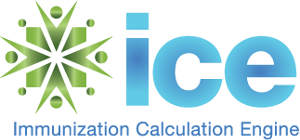Food and Drug Administration (FDA)
See the following -
Obama Administration Announces Key Actions to Accelerate Precision Medicine Initiative
 A year ago the President announced the launch of the Precision Medicine Initiative to accelerate a new era of medicine that delivers the right treatment at the right time to the right person, taking into account individuals’ health history, genes, environments, and lifestyles. Precision medicine is already transforming the way diseases like cancer and mental health conditions are treated. Molecular testing for cancer patients lets physicians and patients select treatments that improve chances of survival and reduce adverse effects...
A year ago the President announced the launch of the Precision Medicine Initiative to accelerate a new era of medicine that delivers the right treatment at the right time to the right person, taking into account individuals’ health history, genes, environments, and lifestyles. Precision medicine is already transforming the way diseases like cancer and mental health conditions are treated. Molecular testing for cancer patients lets physicians and patients select treatments that improve chances of survival and reduce adverse effects...
- Login to post comments
On the Financial Conflicts of Interests of Medical Societies and Rising Drug Prices
 The notion that health care prices are high and are rising continuously in the US should hardly be novel...We first posted about high drug prices in July, 2005, with the example of BilDil...But only a few days later we noted that three cancer costs had yearly costs in the five figures, and one, Erbitux, cost as much as $100,000. Most amazingly we noted that Thalidomid was priced at $25,000 a year...Since then, the ridiculously high prices of many tests and treatments, but most notably new drugs and devices, has been so widely covered, our discussion has been limited to special cases.,,
The notion that health care prices are high and are rising continuously in the US should hardly be novel...We first posted about high drug prices in July, 2005, with the example of BilDil...But only a few days later we noted that three cancer costs had yearly costs in the five figures, and one, Erbitux, cost as much as $100,000. Most amazingly we noted that Thalidomid was priced at $25,000 a year...Since then, the ridiculously high prices of many tests and treatments, but most notably new drugs and devices, has been so widely covered, our discussion has been limited to special cases.,,
- Login to post comments
On the Lack of Cyber Security of Medical Devices
 Two weeks ago the U.S. Food and Drug Administration advised hospitals not to use Hospira's Symbiq infusion system, concluding that a security vulnerability enables hackers to take remote control of the system. The agency issued the advisory some 10 days after the U.S. Department of Homeland Security warned of the vulnerability in the pump. My view is that this will be the first of many advisories. For years, manufacturers of medical devices depended on the “kindness of strangers” assuming that devices would never be targeted by bad actors. EKG machines, IV pumps, and radiology workstations are all computers, often running un-patched old operating systems, ancient Java virtual machines, and old web servers that no one should currently have deployed in production.
Two weeks ago the U.S. Food and Drug Administration advised hospitals not to use Hospira's Symbiq infusion system, concluding that a security vulnerability enables hackers to take remote control of the system. The agency issued the advisory some 10 days after the U.S. Department of Homeland Security warned of the vulnerability in the pump. My view is that this will be the first of many advisories. For years, manufacturers of medical devices depended on the “kindness of strangers” assuming that devices would never be targeted by bad actors. EKG machines, IV pumps, and radiology workstations are all computers, often running un-patched old operating systems, ancient Java virtual machines, and old web servers that no one should currently have deployed in production.
- Login to post comments
On the Lack of Good Medical Evidence for the New $100,000 Hepatitis C Drug Treatments
 As we wrote, most recently last week, the hepatitis C screening and treatment bandwagon keeps rolling along. There is constant public argument whether about the prices of treatment regimens, which approach $100,000 per patient in the US...However, starting in March, 2014, we have posted about the lack of good evidence from clinical research suggesting these drugs are in fact so wondrous...
As we wrote, most recently last week, the hepatitis C screening and treatment bandwagon keeps rolling along. There is constant public argument whether about the prices of treatment regimens, which approach $100,000 per patient in the US...However, starting in March, 2014, we have posted about the lack of good evidence from clinical research suggesting these drugs are in fact so wondrous...
- Login to post comments
On the Need for Human-Centered Design in EHRs
 Health information technology (HIT) has become the hottest political issue in Washington. The healthcare industry in the United States is facing a crisis as medical facilities have spent hundreds of billions of dollars implementing electronic health record (EHR) systems, yet patients and the physicians and nurses that care for them are seeing few benefits. Congress has been holding hearings focused on detailing the problems and trying to write legislation that will provide a solution to the crisis. The HIT interoperability bill drafted by Rep. Michael C. Burgess (R-TX) is one example. These are welcome first steps. However, none of the bills currently before Congress, and none of the hearings, are addressing the two most important issues facing medical providers today. These are lack of EHR usability, and the inability to have a patients’ entire medical record at the point of care.
Health information technology (HIT) has become the hottest political issue in Washington. The healthcare industry in the United States is facing a crisis as medical facilities have spent hundreds of billions of dollars implementing electronic health record (EHR) systems, yet patients and the physicians and nurses that care for them are seeing few benefits. Congress has been holding hearings focused on detailing the problems and trying to write legislation that will provide a solution to the crisis. The HIT interoperability bill drafted by Rep. Michael C. Burgess (R-TX) is one example. These are welcome first steps. However, none of the bills currently before Congress, and none of the hearings, are addressing the two most important issues facing medical providers today. These are lack of EHR usability, and the inability to have a patients’ entire medical record at the point of care.
One in Five U.S. Adults Takes Medication for a Mental Disorder
Medications to treat mental health disorders is soaring among U.S. adults, according to data released Wednesday by Medco Health Solutions, a pharmacy benefit manager. Twenty percent of all adults said they took at least one medication to treat a mental disorder. Among women, 25% said they took such medication and 20% said they were using an antidepressant. Read More »
- Login to post comments
Open Health Round-Up For 2014: Notable Articles, Reports, And Events
Even the hidebound field of health care can undergo a lot of change over the course of one year. Key health IT trends that I saw throughout 2014 are summarized in another article. Here I'll list some of the most notable articles and reports related to open source, standards, and transparency in health. Read More »
Open Source Drug Discovery (OSDD): A Paradigm Shift
...proponents of [Open Source Drug Discovery] believe that the global need for new low-cost drugs, particularly for treating neglected tropical diseases, will make this model effective.[4] The open source software technologies played the role of enabling this huge and complex collaboration. The success achieved has been remarkable because it has been achieved in little over 2 years...
- Login to post comments
Open Source Immunization Forecaster Updated to Support Pfizer COVID Vaccine
 On December 15, 2020, HLN released a new version (v1.26.2) of the Immunization Calculation Engine (ICE) in support of the Pfizer COVID vaccine. ICE is a state-of-the-art open source software system that provides clinical decision support for immunizations for use in Immunization Information Systems (IIS), Electronic Health Record (EHR), and Personal Health Record (PHR) Systems. Version 1.26.2 includes support for new COVID-19 Vaccine Group (with the Pfizer vaccine only). A subsequent release, coming soon, will likely add support for the Moderna vaccine. Read More »
On December 15, 2020, HLN released a new version (v1.26.2) of the Immunization Calculation Engine (ICE) in support of the Pfizer COVID vaccine. ICE is a state-of-the-art open source software system that provides clinical decision support for immunizations for use in Immunization Information Systems (IIS), Electronic Health Record (EHR), and Personal Health Record (PHR) Systems. Version 1.26.2 includes support for new COVID-19 Vaccine Group (with the Pfizer vaccine only). A subsequent release, coming soon, will likely add support for the Moderna vaccine. Read More »
- Login to post comments
Open Source Robotic Surgery System In The Works
While the Da Vinci surgical system is the only robot with U.S. Food and Drug Administration (FDA) approval--and the target of plenty of criticism--researchers are looking to develop surgical robots based on open source technology, reports Scientific American. Read More »
- Login to post comments
OpenFDA Backstory: Breaking The Paperwork Backlog
The startup Captricity uses a combination of crowdsourcing and OCR to digitize mountains of paper records, particularly for government agencies and healthcare...
- Login to post comments
OpenFDA Backstory: Breaking The Paperwork Backlog
The startup Captricity uses a combination of crowdsourcing and OCR to digitize mountains of paper records, particularly for government agencies and healthcare. Read More »
- Login to post comments
OpenFDA: Innovative Initiative Opens Door To Wealth Of FDA’s Publicly Available Data
OpenFDA is specifically designed to make it easier for developers, researchers, and the public to access and use the many large, important, health data sets collected by the agency.
- Login to post comments
Opening Up the FDA
 The President's Executive Order on Open Government Data states, "Government information shall be managed as an asset throughout its life cycle to promote interoperability and openness, and, wherever possible and legally permissible, to ensure that data are released to the public in ways that make the data easy to find, accessible, and usable." Interestingly, the Department of Health and Human Services (HHS), which includes the Food & Drug Administration (FDA), has a tradition of expansive disclosure of information and/or data it generates or collects – contrary to current practices at the FDA. Hopefully, changes being made to 'open up' the FDA will start to accelerate. Read More »
The President's Executive Order on Open Government Data states, "Government information shall be managed as an asset throughout its life cycle to promote interoperability and openness, and, wherever possible and legally permissible, to ensure that data are released to the public in ways that make the data easy to find, accessible, and usable." Interestingly, the Department of Health and Human Services (HHS), which includes the Food & Drug Administration (FDA), has a tradition of expansive disclosure of information and/or data it generates or collects – contrary to current practices at the FDA. Hopefully, changes being made to 'open up' the FDA will start to accelerate. Read More »
Opening Up The Indian Rare Disease Market: An Interview With ORD India
We here at Total Orphan Drugs, as part of this month’s focus on emerging markets for the orphan drug industry, have been speaking to Harsha K Rajasimha of the newly formed Organization for Rare Diseases India (ORDI). With a rare disease population estimated to be around 72,611,605 (more than the US and EU rare disease populations combined) the need for orphan treatments is huge, and with little in place so far, India represents a lucrative market to developers and pharma looking to expand their orphan operations.
- Login to post comments